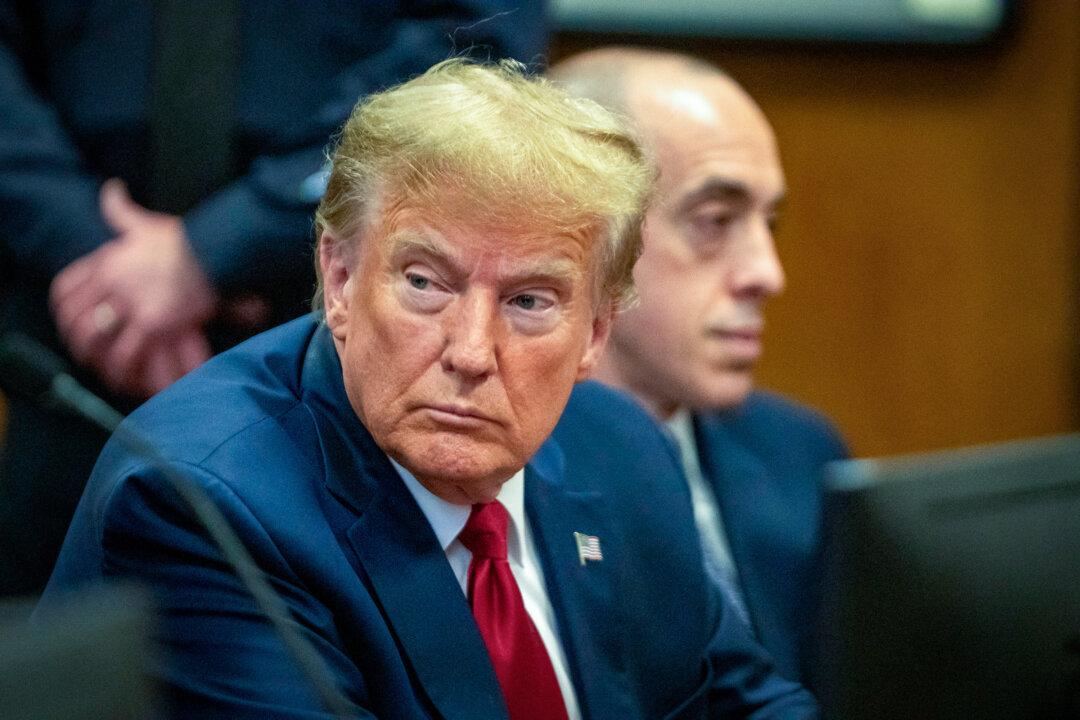On March 14, attorneys for former President Donald Trump asked for adjournment of an upcoming criminal trial in Manhattan, accusing prosecutors of “mischaracterizations” and other violations in their request for a mere 30-day delay.
President Trump was set to go to trial on March 25 for a case charging him with 34 counts of falsifying business records.





